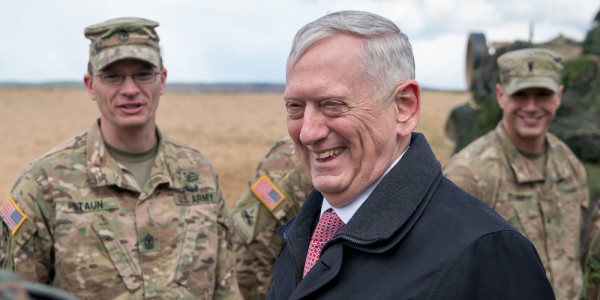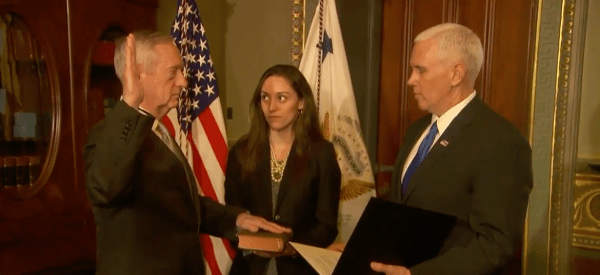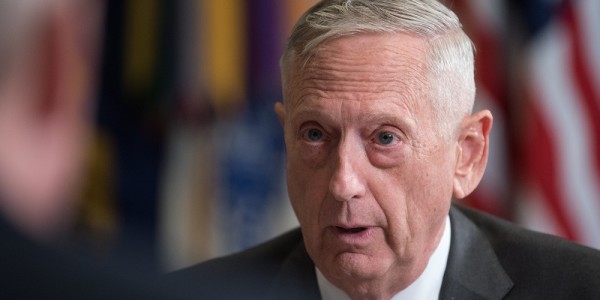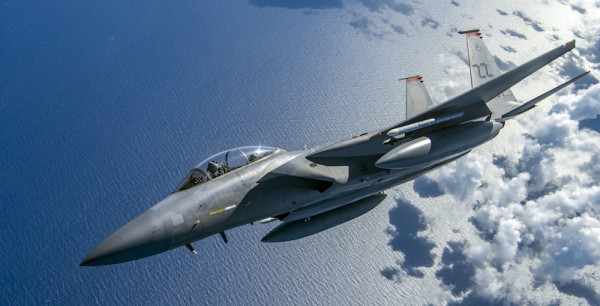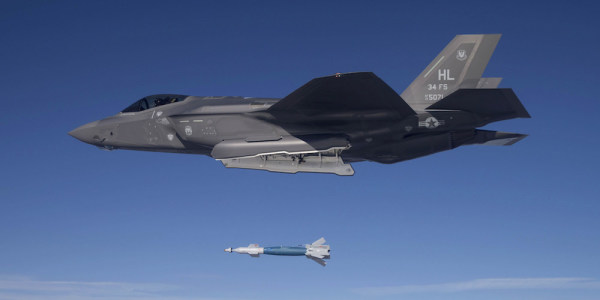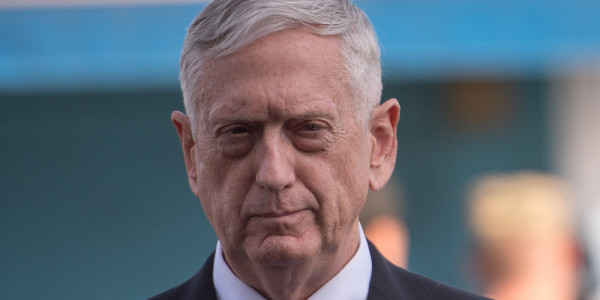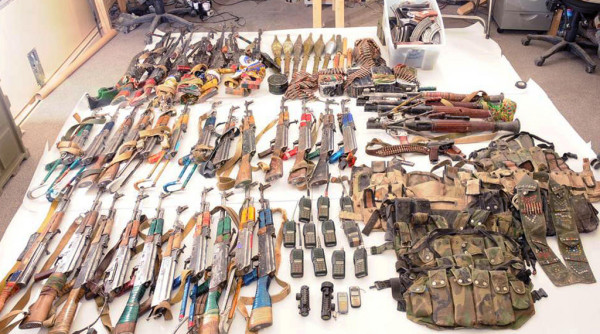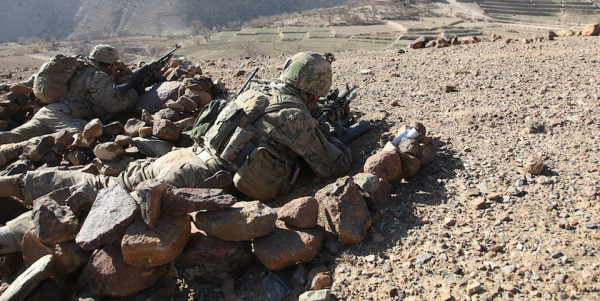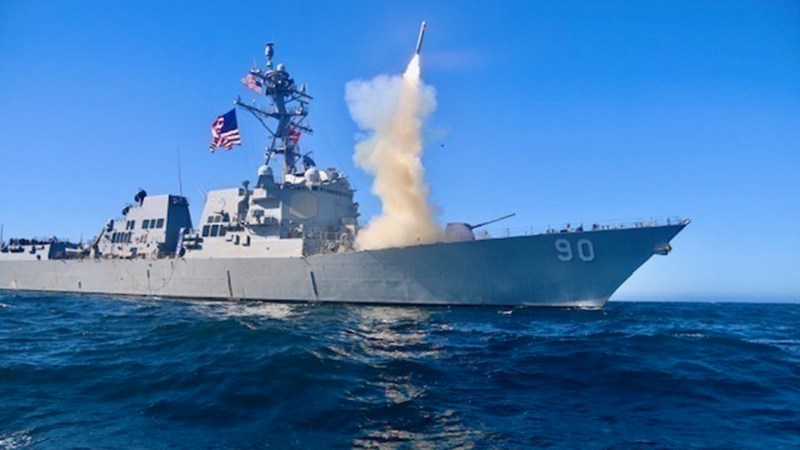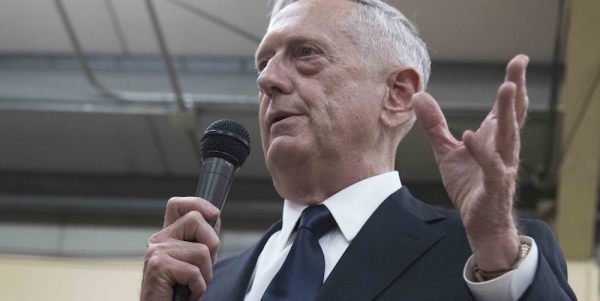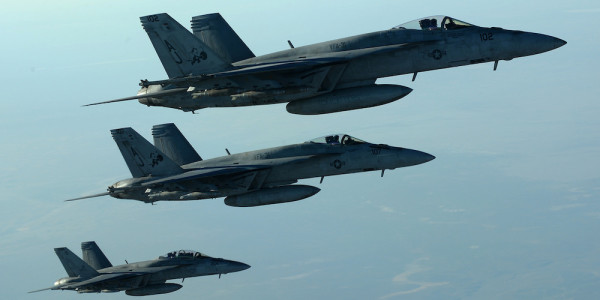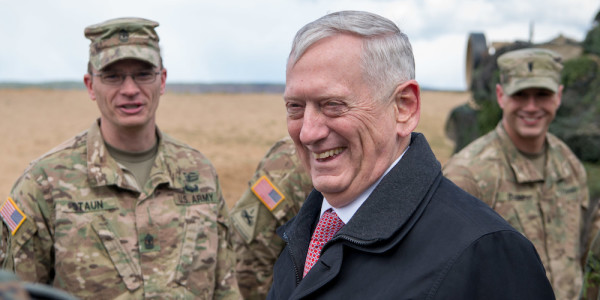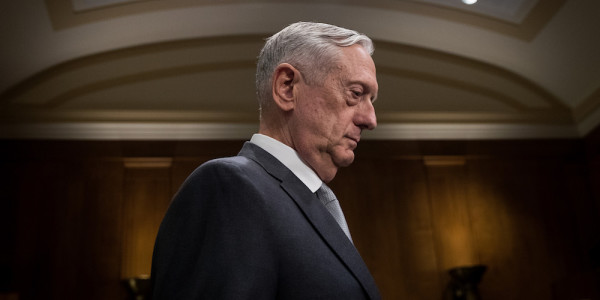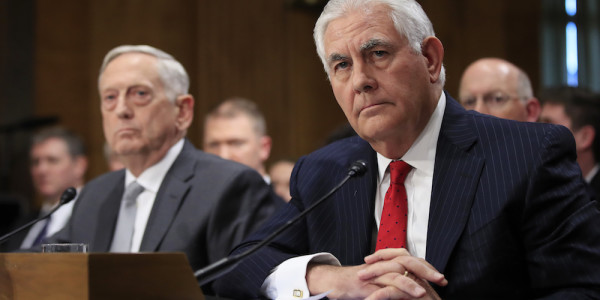Secretary of Defense Jim Mattis “personally intervened” in the Department of Defense’s fiscal year 2018 budget request to maximize the number of munitions procured by the Pentagon, Defense News reported May 23.
Mattis’ request reportedly focused on pushing the Pentagon’s procurement of six types of “preferred munitions” to replenish existing arsenals that have been rapidly depleted by the ongoing bombing campaign waged by the U.S.-led multinational coalition against ISIS in Iraq in Syria.
The Pentagon’s budget request notes that the U.S. Air Force has expended “over 50,000 munitions” ($2.8 billion worth) since the beginning of Operation Inherent Resolve in August 2014. (Previous statistics published by U.S. Central Command indicated that total bomb expenditures were closer to 65,000.)
Speaking to reporters on May 23, acting DoD comptroller John Roth stated that those “preferred” bombs were given a “last-minute boost from Mattis himself,” according to Defense News.
“As we closed out this budget, over the last two or three weeks in particular, a great deal of concern was being raised with current inventory levels, particularly given some of the expenditures in the CENTCOM area of operations,” said Roth. “So the secretary mandated and insisted we fully fund, to the maximum extent possible, the full production capacities for certain selected preferred munitions.”
In total, the Pentagon outlined $16.4 billion for missiles and munitions as part of its 2018 budget request, up from $14.9 billion in 2017. Those preferred munitions include 7,312 Small Diameter Bombs (SDB) and 34,529 Joint Direct Attack Munitions (JDAM), and 7,664 Hellfire missiles, among others.
The emphasis on the SDB and JDAM is particularly noteworthy. Testifying before the House Armed Services Committee in May, U.S. Pacific Command Commander Adm. Harry B. Harris Jr. cautioned lawmakers that expanded operations against ISIS were draining existing arsenals of smart bombs, necessitating an uptick in production to maintain the operational tempo of Operation Inherent Resolve.
“We are short on things like Small Diameter Bombs,” Harris told lawmakers. “These are not exciting kinds of weapons … but they are absolutely critical to what we are trying to do, not only in North Korea but also in fights in the Middle East.”
Harris delivered the same warning in testimony before the Senate Armed Services Committee in February 2016. “Critical munitions shortfalls are a top priority and concern,” he said at the time. “Munitions are a major component of combat readiness. USPACOM forces need improvements in munitions technologies, production, and pre-positioning, but fiscal pressure places this at risk.”
Mattis’ one-man funding boost will certainly be a boon for weapons manufacturers. As Task & Purpose previously reported, Boeing has ramped up production of both SDB bomb kits and JDAMs in recent months at the behest of both the U.S. Navy and Air Force. And last June, the U.S. Army hit Lockheed Martin with $18 billion to increase production on the Hellfire missiles that adorn the now-ubiquitous MQ-1 Predator and MQ-9 Reaper drones, the latter of which just received an upgrade to carry the ultra-effective GPS-guided JDAMS.
During the 2016 presidential campaign, then-candidate Donald Trump promised to “bomb the hell out of ISIS” if elected, and he’s since made good on that pledge: An Air Force Central Command said in April that U.S. forces had deployed nearly 11,000 munitions against ISIS targets in the first three months of Trump’s administration, a 62% increase over the same period in 2016.
If the Pentagon’s 2018 budget request is any indication, Mattis is on board with this plan — and he’s absolutely playing for keeps.

